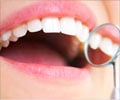Dentists have been encouraged to probe into the personal lives of their patients to help control the rising incidence of oral cancer.

The above requirement is seen as a move to get the dentists to take a more active role in fighting oral carcinoma, which is claiming increasing numbers of lives in the UK.
The number of people with oral cancer has been steadily increasing. It is predicted that by 2030, 9,200 cases of this cancer will be diagnosed each year in the UK alone. Naturally, death rates too are expected to rise by around 22 per cent in the next two decades.
The reason for the present trend remains hazy, nevertheless, it is thought that the human papilloma virus (HPV), which can infect the mouth through oral sex, has a role to play. HPV is considered to be a risk factor for oral cancer along with alcohol and smoking.
The number of people indulging in alcohol and oral sex has considerably increased, especially among the young. There is growing evidence that those who have multiple sex partners and those who indulge in oral sex carry an increased risk for oral cancer.
Oral carcinoma is a type of cancer that affects the lips, tongue, cheek lining, palate, gums and floor of the mouth. Symptoms include sores, ulcers or lumps, but these are usually dismissed as insignificant or harmless.
Cancer Research UK, the British Society for Oral Medicine, and the British Association for the Study of Community Dentistry are jointly persuading the dentists to take oral cancer more seriously. They are seeking to make early detection and prevention of oral carcinoma a compulsory part of training for the dentists.
Recently, oral cancer detection has been made a recommended subject, not compulsory, for continuing professional development. This is just half the way. What is required is early diagnosis and prevention to be treated with the same importance as what is given to cross infection control and the risk from X-ray radiation. And it is hoped that it will happen, sooner than later !
Source-Medindia















